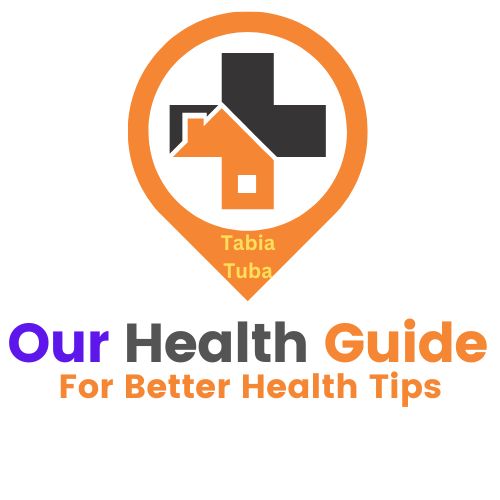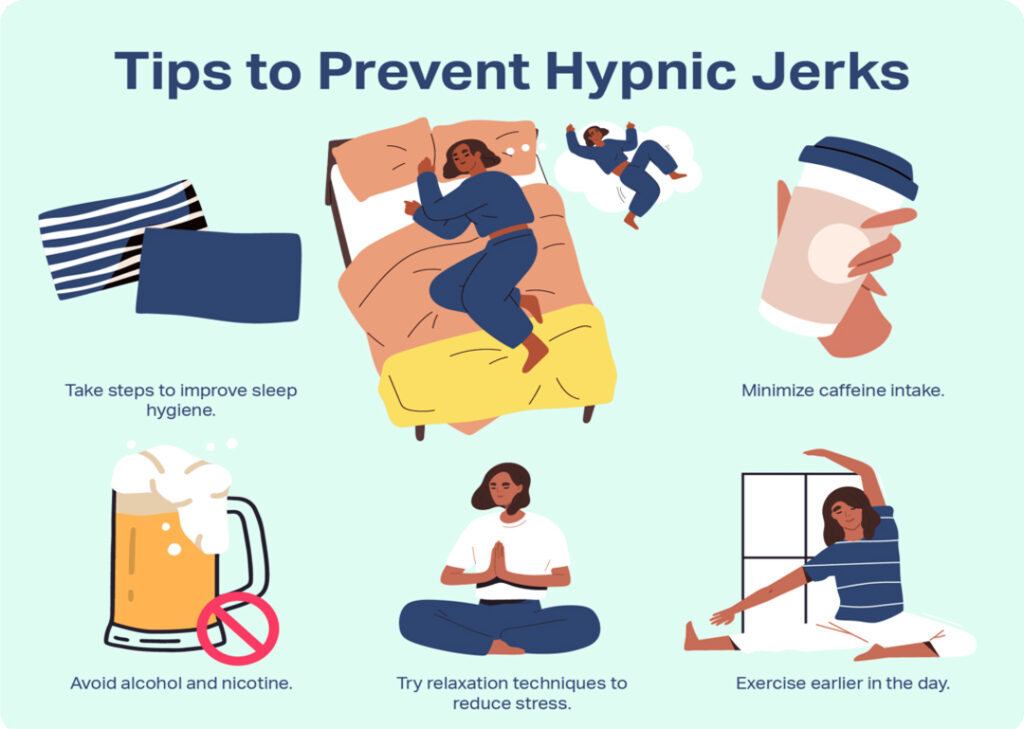Hypnic Jerks in Sleep
Hypnic Jerks in Sleep also known as sleep starts, are sudden, involuntary muscle contractions that occur when a person is transitioning from wakefulness to sleep. These jerks can cause a brief awakening, often accompanied by a sensation of falling. While they are typically harmless, they can be disruptive and may contribute to sleep anxiety for some individuals.
During this time people are not completely asleep. Rather, it can be said that he is drowsy. It is in this state that dreaming begins. In such situations, the brain often cannot distinguish between waking and dreaming. As a result, his body is shocked. From this is created ‘Hypnic Jerks’ & Hypnic Jerks in Sleep.
When the body becomes drowsy, the muscles and tendons slowly relax. But, the brain is unable to recognize the position of the muscles in the body and tries to block the process, resulting in tremors in the body. Also called hypnogogic jerk, sleep start, sleep twitch, myoclonic jerk, night start.
About 70% of people experience this at least once in their life and at least 10% of them realize it every day. Their problem is positive or favorable and not caused by any neurological problem.
Causes of Hypnic Jerks in Sleep
Understanding the causes of hypnic jerks is essential for managing them effectively. Several factors may contribute to their occurrence:
1. Stress and Anxiety:
High levels of stress and anxiety can increase the likelihood of hypnic jerks. When the mind is racing, it may trigger these involuntary muscle contractions as the body relaxes.
2. Sleep Deprivation:
Lack of sleep can make the body more susceptible to it. When overly tired, the brain may misinterpret the transition to sleep, leading to sudden muscle twitches.
3. Caffeine and Stimulants:
Consuming caffeine or other stimulants close to bedtime can disrupt the natural sleep cycle and increase the chances of experiencing hypnic jerks.
4. Exercise:
Engaging in vigorous exercise, especially close to bedtime, can lead to muscle tension and fatigue, which may manifest as it during sleep onset.
5. Sleep Disorders:
Conditions such as sleep apnea or restless leg syndrome can increase the frequency of hypnic jerks. Underlying sleep disorders may disrupt the natural sleep cycle, making it more prevalent.
6. Neurological Factors:
Some studies suggest that hypnic jerks may be linked to neurological activity during the transition to sleep. The brain may misfire, resulting in involuntary muscle contractions.
Managing Hypnic Jerks
If you’re experiencing hypnic jerks, there are several strategies you can employ to manage them effectively:
1. Establish a Relaxing Bedtime Routine
Creating a calming pre-sleep routine can help signal to your body that it’s time to wind down. Activities such as reading, meditating, or practicing deep breathing exercises can promote relaxation and reduce the likelihood of hypnic jerks.
2. Limit Stimulants
Reducing or eliminating caffeine, nicotine, and other stimulants in the hours leading up to bedtime can help minimize the occurrence of hypnic jerks. Aim for a caffeine cut-off time of at least six hours before sleep.
3. Ensure Adequate Sleep
Prioritize getting enough restful sleep each night. Aim for seven to nine hours of sleep to help your body and mind recover. A regular sleep schedule can also improve overall sleep quality.
4. Create a Comfortable Sleep Environment
Make your bedroom conducive to sleep by keeping it dark, quiet, and at a comfortable temperature. Consider using blackout curtains, white noise machines, or comfortable bedding to enhance your sleep environment.
5. Manage Stress and Anxiety
Practicing relaxation techniques can be beneficial for reducing stress and anxiety, which may contribute to Hypnic Jerks in Sleep. Techniques such as yoga, meditation, or progressive muscle relaxation can promote a sense of calm.
6. Limit Evening Exercise
While regular exercise is important for overall health, try to avoid vigorous workouts close to bedtime. Instead, opt for gentle stretching or relaxation exercises in the evening to ease tension.
7. Consider Sleep Position
Some people find that certain sleep positions can exacerbate hypnic jerks. Experiment with different positions to see if one feels more comfortable and leads to fewer muscle contractions.
8. Stay Hydrated
Dehydration can contribute to muscle cramps and spasms, which may increase the frequency of hypnic jerks. Ensure you drink enough water throughout the day, but limit fluids right before bed to avoid nighttime awakenings.
9. Monitor Your Diet
A balanced diet rich in essential nutrients can support overall sleep health. Ensure you’re getting enough magnesium, potassium, and calcium, as deficiencies in these minerals can contribute to muscle twitches.
10. Seek Professional Help
If hypnic jerks persist and disrupt your sleep, consider consulting a healthcare professional or sleep specialist. They can evaluate your symptoms, rule out underlying sleep disorders, and recommend appropriate treatment options.
Conclusion
Hypnic Jerks in Sleep can be a surprising and sometimes unsettling experience for those trying to fall asleep. By understanding the definition, causes, and effective management strategies, individuals can reduce their frequency and impact. Prioritizing relaxation, establishing a healthy sleep routine, and addressing underlying factors can lead to a more restful night’s sleep. If Hypnic Jerks in Sleep continue to be a concern, seeking professional guidance can provide additional support and solutions.
FAQ:
Question-01: Are Hypnic Jerks in Sleep Normal? Should I be Concerned?
Answer: Hypnic Jerks in Sleep can be unsettling, but they are not dangerous. Up to 70% of people experience hypnic jerks. Hypnic jerks can be annoying and disrupt the sleep of you or your partner, but that is typically the extent of their negative effects. While it is possible that a particularly violent jerk could lead to a minor injury, this is not common.
Question-02: Why Does My Body Twitch at Random Times at Night?
Answer: Researchers do not know for certain what causes hypnic jerks, but there are some theories. It and other types of myoclonus start in the same part of your brain that controls your startle response.
When you fall asleep, it is suspected that a misfire sometimes occurs between nerves in the reticular brainstem, creating a reaction that leads to a Hypnic Jerks in Sleep.


https://AccStores.com is your go-to source for verified social media accounts. We provide PVA accounts that are secure, reliable, and ready to use, making them ideal for boosting your online presence. Get started today with our fast, easy account delivery.
Find Out More:
https://AccStores.com
Warmest Thanks!
Thanks